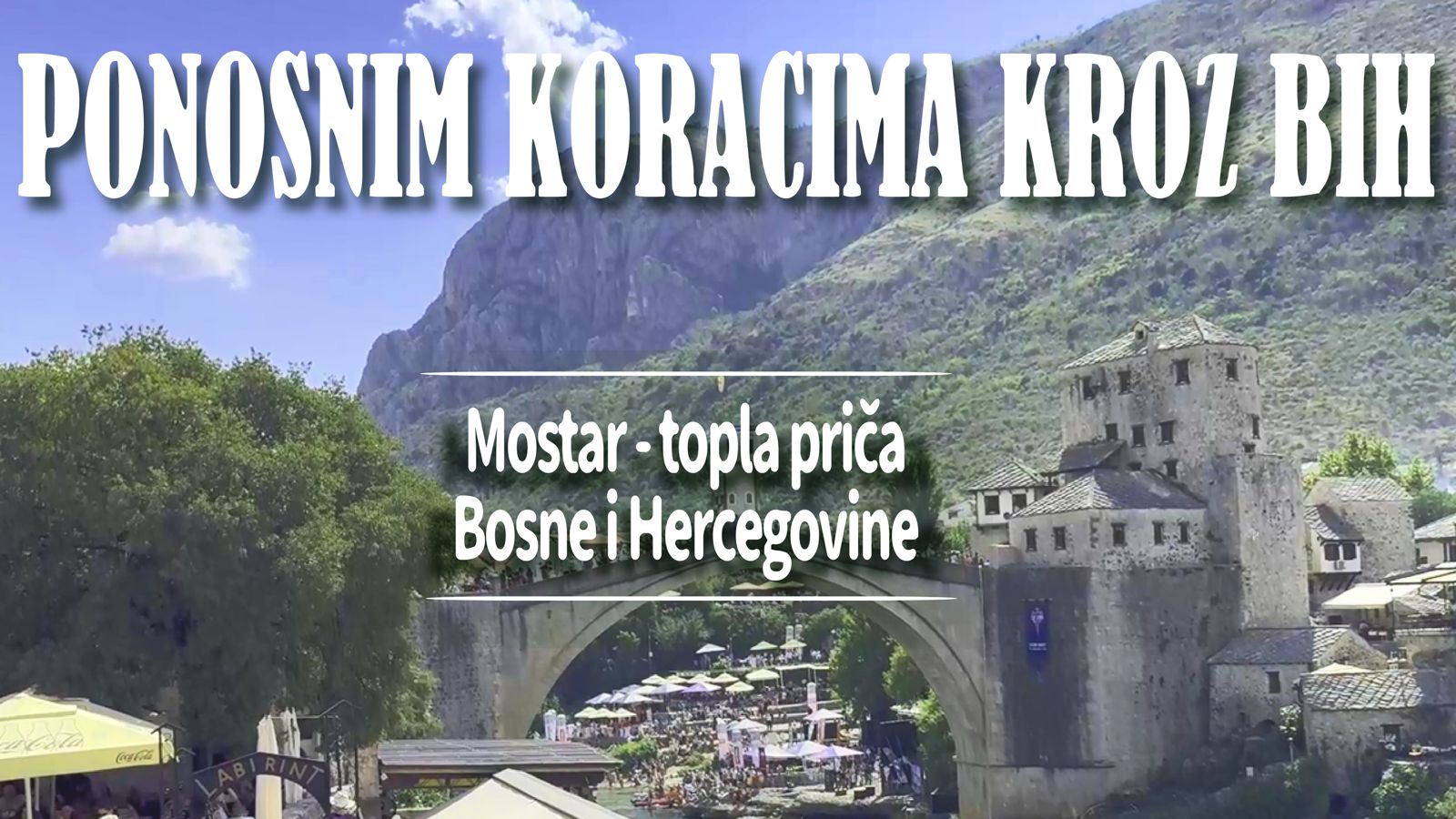In July, the Hastor Foundation visited one of Bosnia and Herzegovina’s lesser-known tourist attractions¾Livno. Nestled deep within the karst fields of the country’s western region, the town rarely appears on the usual tourist routes. However, our team set out to showcase some of its natural and historical treasures. Our gracious hosts were our alumni, Mirza Muraga and Semir Čolić, who warmly welcomed the reporting team.
The team first visited Firdus Bridge, a stone arch structure from the late 17th to early 18th century that spans the Bistrica River. They then headed upstream to the source of the Duman River, a refreshing oasis in the summer months. Along the way, they spoke about staying in our homeland. Mirza, for instance, had the opportunity to work in his field within the European Union, but out of patriotism and a desire to contribute to the development of his hometown, he chose to stay and open his own dental practice.
With Semir as their guide, the team climbed up to the Krug plateau near Livno, where they had the chance to encounter dozens of Livno’s wild horses. Their host explained that the wild horses are a phenomenon that emerged in the Tropolje region in the mid-20th century. With the rise of the Second Yugoslavia came greater social mobility for the average person, and many locals left for guest-worker jobs in Central and Western Europe. Farms gradually shrank, and the horse, once the most important working animal, lost its role—leading some to be released into the wild. The exact number of horses is unknown, but estimates put the population at around 800.
The journey concluded on the slopes of Bašajkovac Hill, a popular excursion site on the northern edge of the town, offering wide views of the surrounding landscape. Mirza guided the team through the history of Livno’s development and the Ottoman defensive system of watchtowers encircling its northern side.
In the end, it became clear that Livno, situated at the crossroads of Bosnia, Herzegovina, and Dalmatia, represents a unique cultural-historical and natural region well worth visiting. The interweaving of civilizations in its quiet streets, along with the free gallop of wild horses across its mountains, together embody the Bosnian spirit in miniature.




